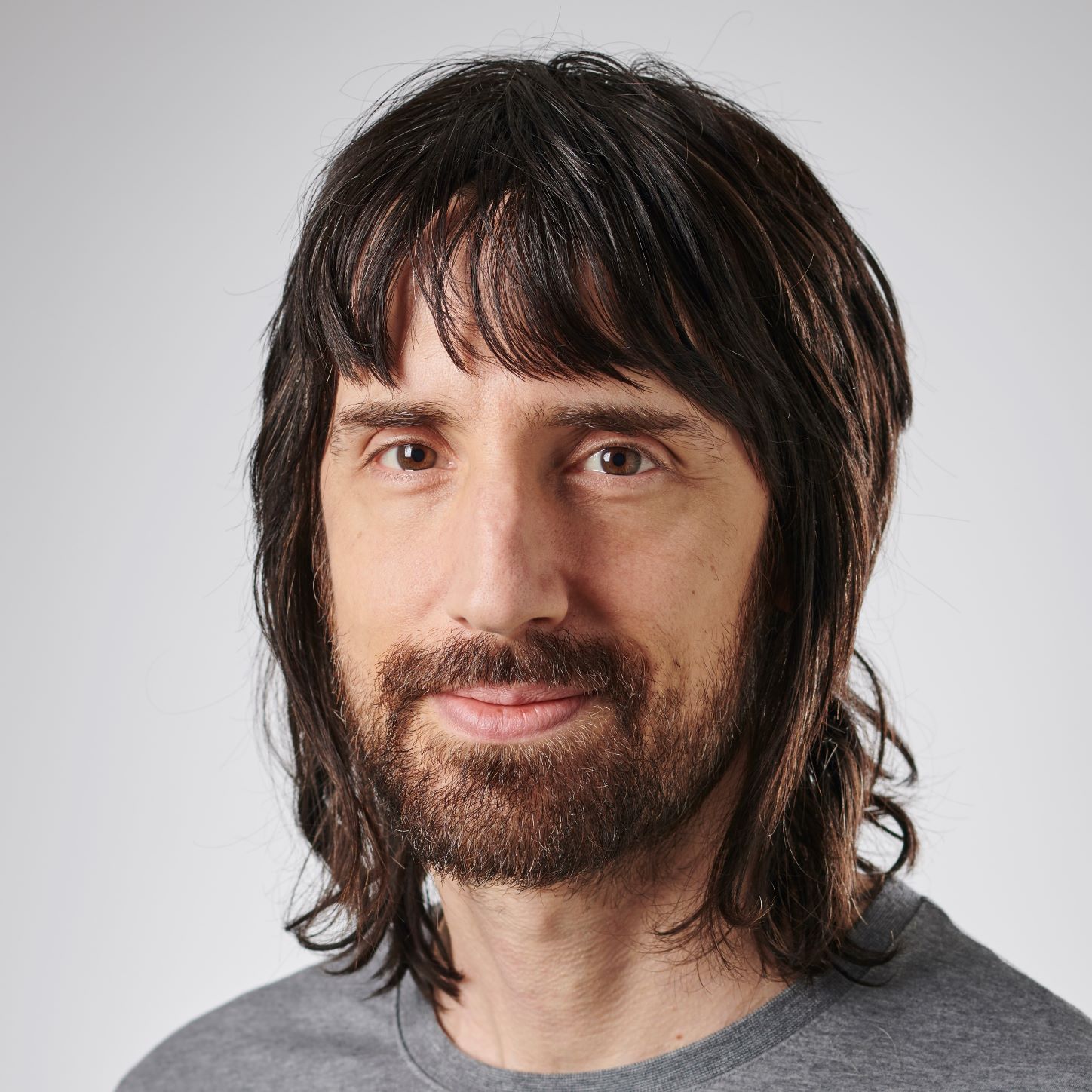Anna Calvi: “There’s this place between trying to be a master of your instrument, but then also being right on the edge of the cliff"
We track down the Tele-wielding, creative firebrand
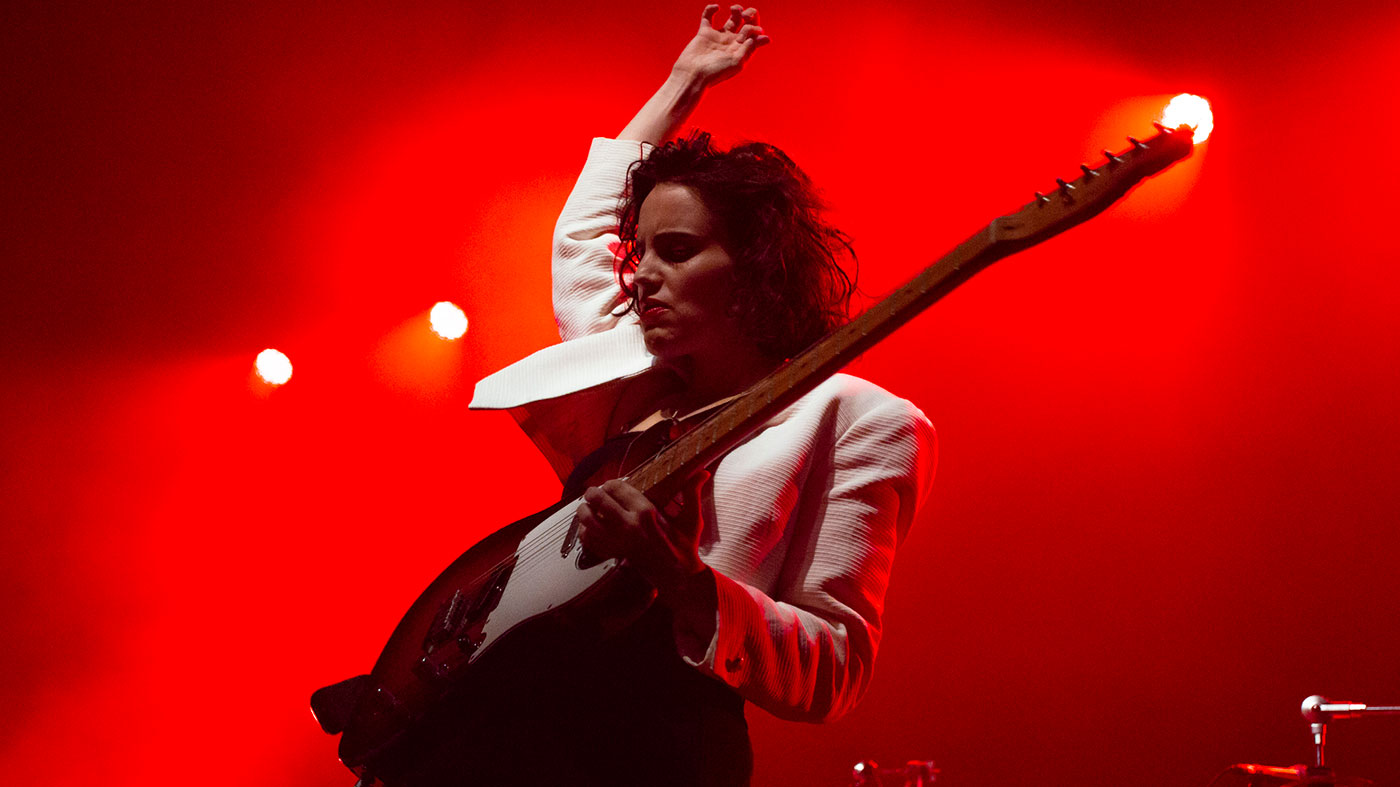
Anna Calvi earned immediate acclaim from critics, music fans and guitar players alike with the release of her eponymous debut album in 2011.
It was a powerful introduction to a remarkable guitarist and, like her follow-up album One Breath released in 2013, was deservedly nominated for the Mercury Prize. Seven years on, with stacks of fevered and unforgettable performances chalked up, Anna is preparing for the release of her third studio long player: the visceral and wildly sensual Hunter.
Taking advantage of a short pause in an impressive tour schedule that runs well into next year, Guitarist travelled over to Fender’s Artist Centre near Kings Cross to meet up with Anna and discover more about how she approaches her hardhitting music, her unique and eloquently wild brand of guitar playing - which has its roots in her classical violin training - and the ageless utility of a battered Tele...
Going wild
That sense of wildness from your shows translated really well on Hunter…
“Yeah, there’s always this place between really knowing what you’re doing and trying to be a master of your instrument, but then also being right on the edge of the cliff where you don’t know what’s going to happen - that feeling of just going for it and not worrying whether it fails or not, y’know?
"Because sometimes it does fail, but other times what your fingers are doing feels like a really direct connection with something very honest inside. It doesn’t happen very often, but when it does it feels good.”
How do you get into that mindset?
Get the MusicRadar Newsletter
Want all the hottest music and gear news, reviews, deals, features and more, direct to your inbox? Sign up here.
Sometimes it’s not to do with how much you practice - it’s more like a state of mind
“I don’t know. Sometimes it’s not to do with how much you practice - it’s more like a state of mind. Like when you feel as if your layers and boundaries of protection are gone, and you’re not trying to be something.
"As a musician, those are the moments when I can deliver something more profound.”
Has being a violinist assisted your guitar technique in any way?
“I actually think that playing the violin has really helped me as a guitarist because the violin is very much about phrasing - it’s not just about hitting a note and that’s it; it’s about how you play the note. And I guess from a guitarist’s point of view, there are so many ways that you can colour a note, rather than just hitting it. It really trained my ears. I did study music at university but I’m not a theoretical player - I do things by ear.
“That’s how I respond to music and how I work things out. I don’t write songs from an analytical point of view - it’s just an emotional response. I feel that that sense of training your ear and really being able to hear properly has really helped with the guitar.
"I mean, being able to hear the notes you’re about to play before you play them as a way of getting around just learning a scale and then just playing notes on that scale.”
Being traditionally based on recitals, classical music is very different to guitar, creatively speaking…
“I was only about eight or nine when I started playing guitar, but I think that was one of the reasons I really liked it - you can make stuff up. I was trying to write songs when I was 10. I just found it really exciting straight away, and that’s what I find really limiting about the violin - you’re just playing other people’s music and there’s not much creativity to it.
"Obviously, it’s like your interpretation of people’s music, but… My first band happened when I was 11. We were called The Rock Spiders, after The Spiders from Mars [laughs]. I started off early…”
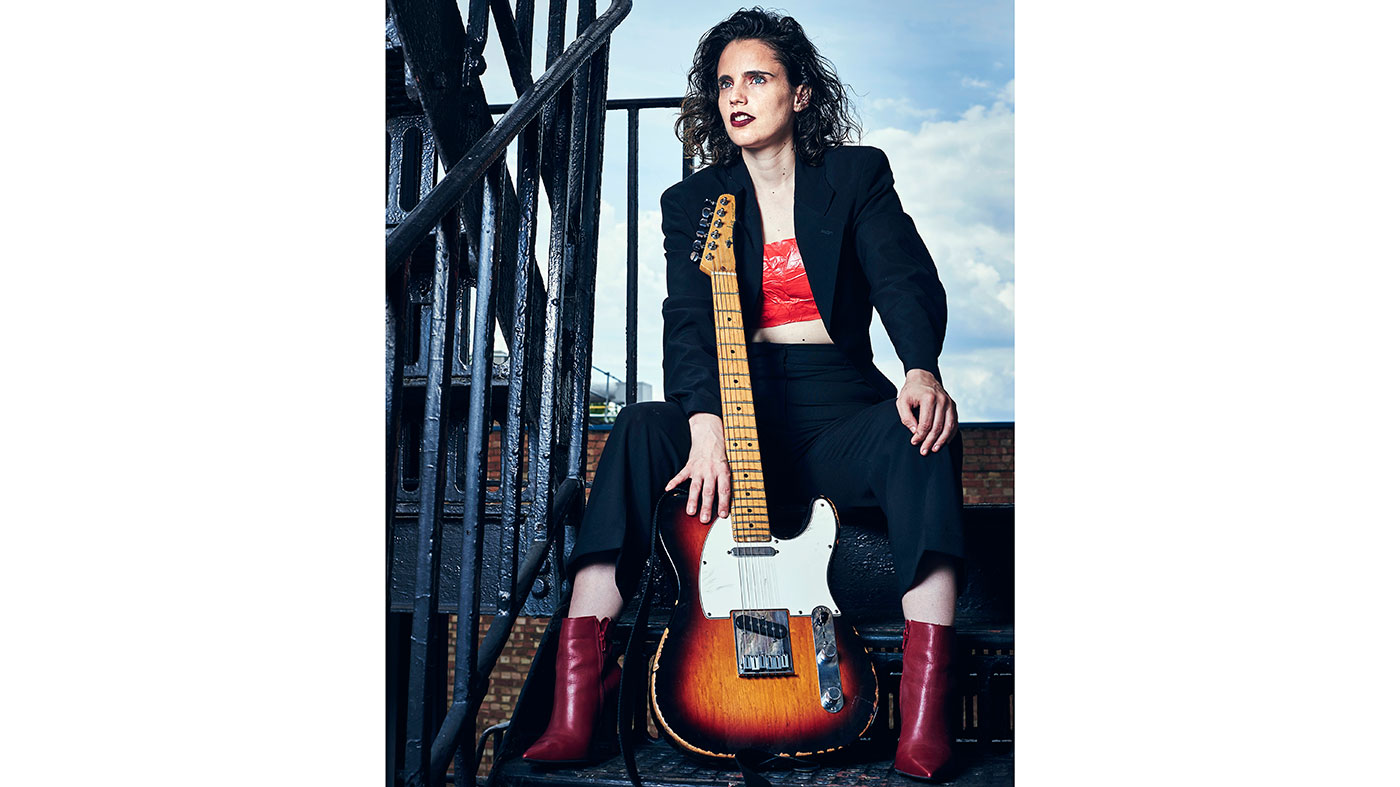
The Hunter mindset
How did you approach writing the songs for your new album, Hunter?
“I started writing it after I finished touring my last record. I took a few years to do it because I guess I wanted to wait until I had material I felt proud of and that I really liked. I did want it to be a guitar record. I wanted there to be moments of the guitar being really wild.
"The album is all about feeling a sense of freedom - a feeling of not being contained by anyone or anything. So, I really wanted the guitar to have that sense of breaking through any feeling of restraint and being really raw and there being moments where it sounds like it’s exploding from out of nowhere.
Both the voice and the guitar have this sense of being almost like a hurricane that can’t be contained
“There’s always this interplay between the voice and the guitar and they’re both reacting to each other. Both the voice and the guitar have this sense of being almost like a hurricane that can’t be contained - that’s what I was going for. I did think about that quite a lot, just making sure there were moments in the songs where the guitar could take over the story.
"For me, the music needs to tell the story of the song as much as the lyrics. I spend a lot of time imagining the songs like mini films. So, all the decisions I make, production-wise, are based on the story of the song. They’re stories in my head, where I can see the scene.”
How did you go about recording Hunter?
“I got Martyn [Casey] from The Bad Seeds to play bass and Adrian Utley [from Portishead] playing synths, as well as my usual band. It was a really good collaboration of musicians and was produced by Nick Launay, who’s worked a lot with The Bad Seeds.
"It was recorded at Konk Studios and then mixed in LA. We did some of the recording at Adrian [Utley’s] studio in Bristol. That’s an example of a place that just makes you want to make music because all of his equipment is just so amazing. I have my eye on one of his guitars - an old 1929 Martin 00-21. I was playing it all the time and making hints just in case he felt like… [laughs].”
How are the songs from Hunter going down live?
“Really good. There’s a lot of contrast on the record between the moments. There are moments that are really strong and powerful and other moments that are really intimate and vulnerable, and I really wanted to bring those contrasts onto the stage to see how far I could go.
"I have this runway that goes out into the audience and it enables there to be more interaction with them. I guess it just ups the stakes and makes everything a bit more intense. You can be right in front of them, and either they are witnessing you completely letting go with everything you have - with your whole body, which, y’know, is quite a vulnerable thing - or you can really get in their faces and be quite confrontational. It’s an interesting dynamic.”
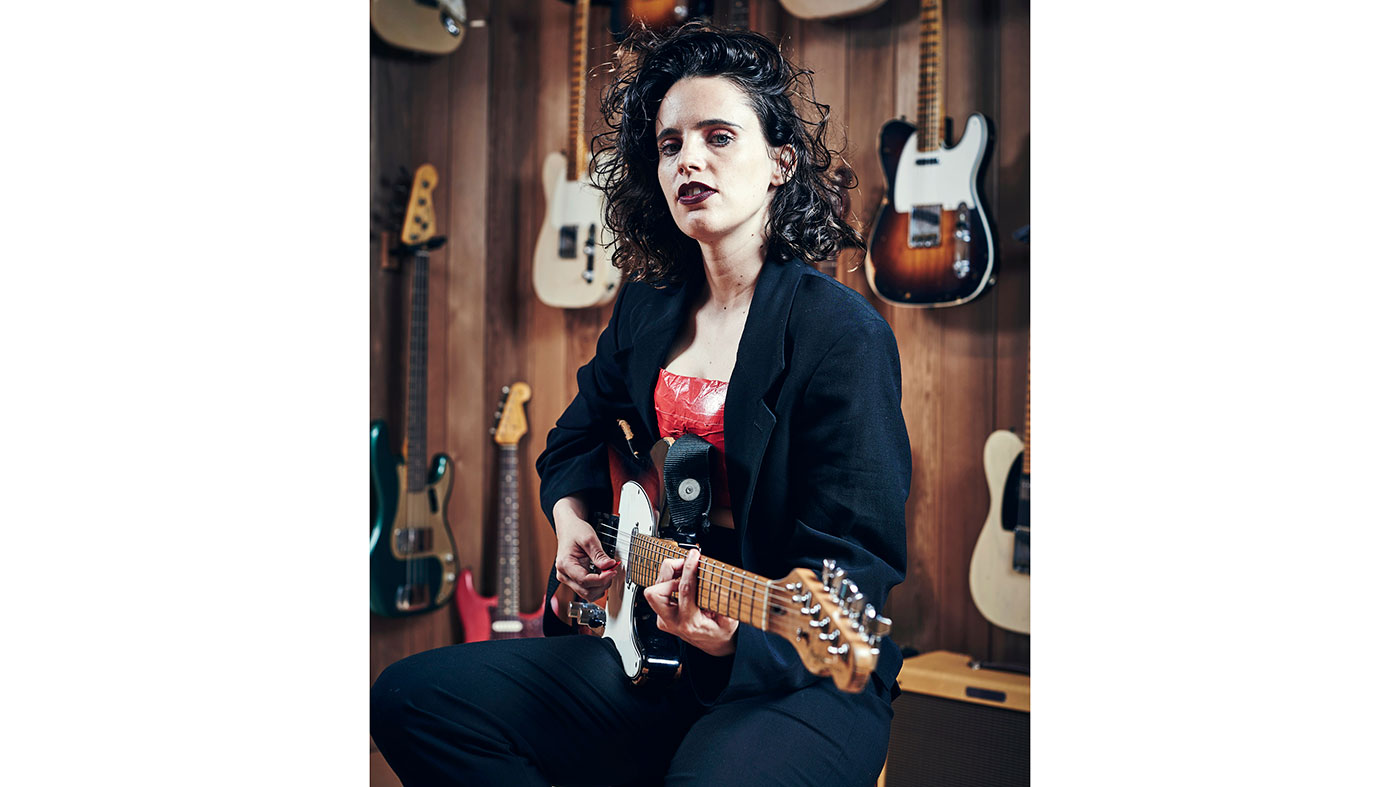
Pedal power
What gear do you find inspiring to use when writing?
“You have to be able to be excited by what you hear. If your guitar sounds shit, then it’s not going to inspire you to write something. When I’m in my studio, I have a Fender Deluxe amp and often I just go straight through that.
"Sometimes, if I want the sound of guitar pedals but I don’t want it on what I’m recording, I’ll just use plug-ins, as a kind of place holder. But the basic sound I always use is reverb from the amp.”
Are you into effects pedals these days?
I was very puritanical about pedals on the first record. It was just reverb and a bit of distortion. For this record I was like, ‘But it’s fun!’
“I’m getting more into them actually. I used some delay on the record with the guitar, which is something I haven’t used before. I was very puritanical about it on the first record. It was just reverb and a bit of distortion and if I wanted to create any other textures I had to do it using my hands, rather than using pedals.
"I had this philosophy about it. For this record I was like, ‘But it’s fun!’ It’s fun finding the pedals, so I was like, ‘Fuck it’. So now I have quite a big setup of pedals.”
What guitars did you use to record Hunter?
“On the recording, it’s pretty much just this [’97 Tele]. I borrowed one of Adrian’s Jazzmasters to record some parts, but a lot of it was done with this. I find that, compared to other Teles, this one has more bite and it’s louder. It has a wilder kind of sound. So, whenever I try other guitars I always come back to this one.”
Can you explain how you developed your unique arpeggio technique?
“I used to listen to a lot of West African music and with that they don’t really do up and down picking so much (it’s more like a kind of sweep picking) and I found out that, for some reason, I’m really good at sweep picking. I don’t know why.
"I remember I played a gig years ago and someone said to me afterwards, ‘It looked like you were stirring soup when you were playing,’ and I thought, ‘That’s interesting’. So, I thought I might develop it, y’know…
“I guess this is what I mean by the idea of creating texture with your hands rather than the pedals: there are lots of ways to do cross rhythms and interesting textures by using the guitar or using your technique in unusual ways. And also, I’m always trying to get the guitar to sound like other things than a guitar - like water, or an orchestra. For me, these are ways to try and get past running up and down the standard blues scale.”
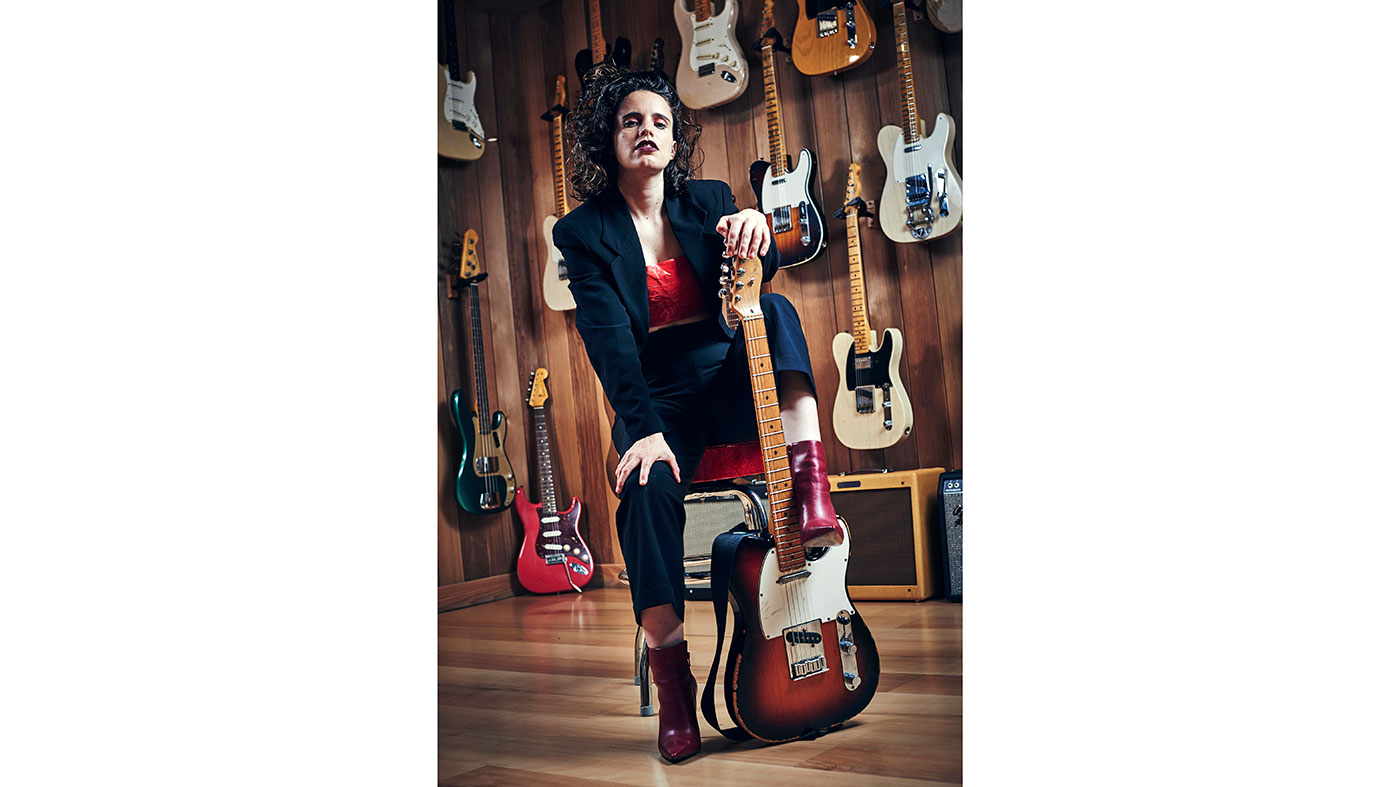
Acoustic associations
Do you play acoustic guitar much?
“I like Spanish guitars, but, no. I think I always liked sounds that have a lot of low-end and I guess acoustic guitars just don’t really do much for me. Also, and I don’t know why, there’s always this assumption that if you’re a woman and you play guitar, then you’ll be playing an acoustic.”
Thankfully, more and more female guitarists are coming through…
I love the idea of bravado, and I guess the guitar is such a great way to express bravado
“There are some interesting female guitar players that are getting more recognition now. I think it’s better than it was. I really like Courtney Barnett. She’s a really great player. Her style is understated; she’s not trying to show us how flash she is, but I feel like her musical choices and this idea of coming from an emotional place, rather than an overly technical place, is what I really respond to from musicians in general.
"I think Laura Marling is a really good guitar player too - again, because it’s not flash, but you can tell that she’s a really good musician.”
With the subject of gender present in your lyrics, how did those ideas feed into the sounds on Hunter?
“I guess I like the idea of taking the canon of rock ’n’ roll - which has been very male dominated - and using it on myself to create something for a woman. This idea that women are delicate and meek is so far from the truth.
"I like the idea of how you can use a guitar, because a guitar can be very brutal sounding. I have a song called Alpha - the idea of an Alpha not being necessarily male (it could be female or whatever) and it’s about bravado. I love the idea of bravado, and I guess the guitar is such a great way to express bravado.
“It’s about deconstructing that idea from a woman’s perspective. The whole reason I called the record Hunter was because I like the idea of a woman hunting and being a protagonist in her own story and just going out and taking what she wants - taking whatever pleasures she wants. Playing guitar is a way of expressing that story. Luckily, I am a guitar player and it feels like the right instrument to explore that idea.”
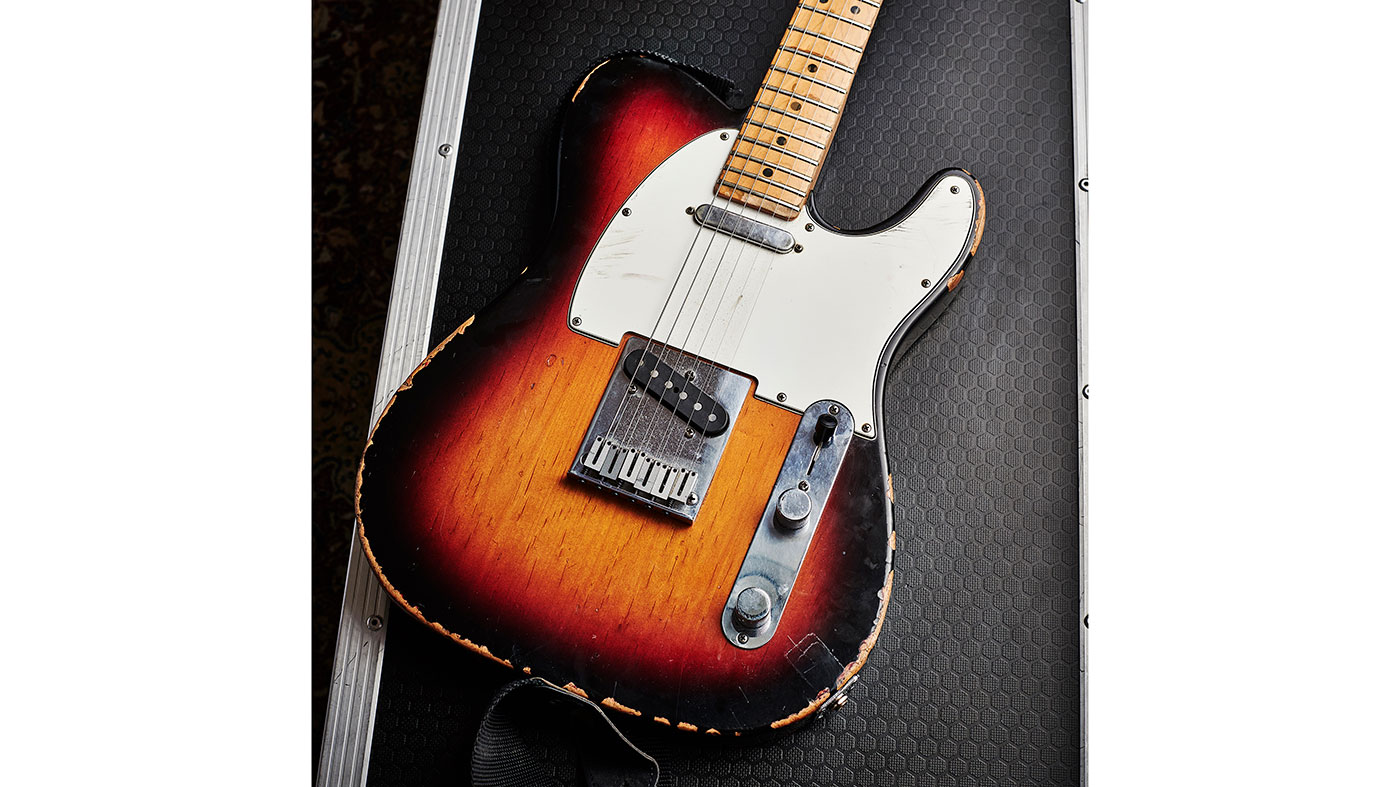
1997 Fender American Standard Telecaster
“This was the first guitar of my own. I’ve never found another guitar - ever - that feels as good as this one. I feel like it’s part of me, but, at the same time, I’m a bit rough with it, as you can see. It’s been battered around a lot.
"Sometimes, I worry I’m going to hit it so hard it’ll break, and that’ll be it, I’ll have to give up guitar [laughs]. It’s good that I picked a Tele to play. I saw Jeff Buckley playing [a Tele] and just thought, ‘I guess that’s the guitar I’m going to have to get then.’
“I got it brand new, in 1997, from a guitar shop that doesn’t exist anymore called Way Out West in Twickenham, when I was about 16. I bought it for about £600 after I did work experience there.
"I remember opening it up; I’d never had a proper hard case before, and the guitar smelled amazing. I remember thinking, ‘This is what real guitars smell like.’ It’s nice to remember, because that’s where it all started.”
Hunter is out now via Domino Music
Rod Brakes is a music journalist with an expertise in guitars. Having spent many years at the coalface as a guitar dealer and tech, Rod's more recent work as a writer covering artists, industry pros and gear includes contributions for leading publications and websites such as Guitarist, Total Guitar, Guitar World, Guitar Player and MusicRadar in addition to specialist music books, blogs and social media. He is also a lifelong musician.


